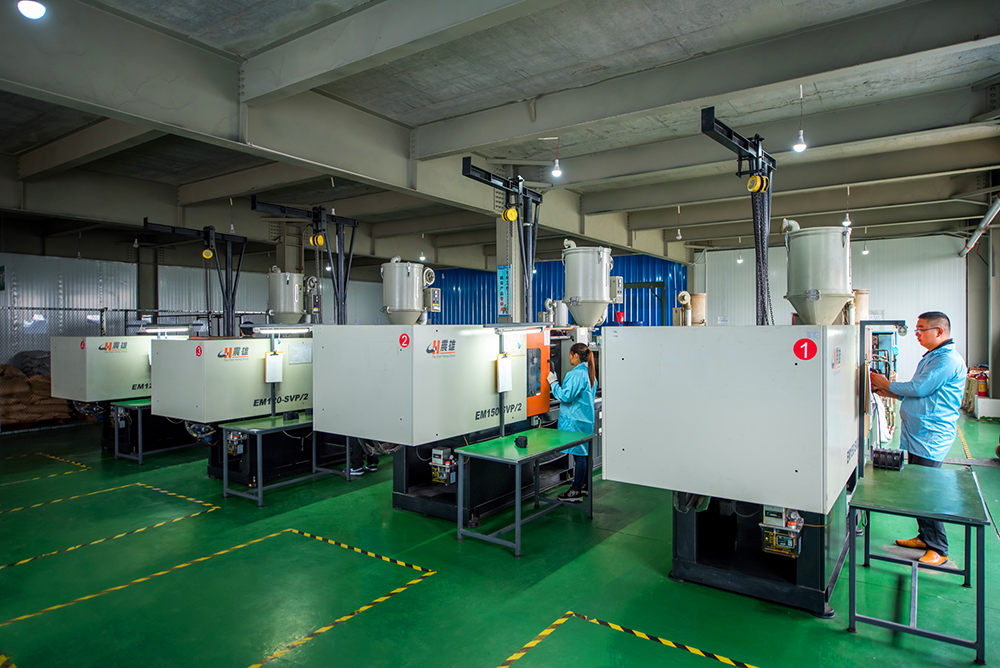As market demand for cooling fans shifts, many manufacturers have raised minimum order quantity (MOQ) requirements. Whether for custom or standard models, these MOQ standards are driven by factors such as production costs, inventory risks, and production efficiency. Below, we examine these factors to help clients better understand the rationale behind MOQ requirements.
1. Production Costs and Supply Chain Constraints
The production of cooling fans involves several essential components, including PCBs, frames, and blades. These components require specialized equipment and are subject to supply chain limitations. For example:
PCB Requirements: When manufacturing high-power custom fans, manufacturers typically need custom PCB boards. However, PCB suppliers often set minimum order quantities around 5,000 units due to setup and material preparation costs. If a client’s order only requires 1,000 units, the excess 4,000 PCBs become inventory, occupying warehouse space and increasing costs. This excess is particularly costly for specialized PCBs (like PWM control boards), creating risks of tied-up capital and storage issues. To offset these costs, manufacturers either pass the extra expense to clients or decline small orders.
Injection Molding Costs: Fan frames and blades are commonly produced through injection molding. Each production run requires raw material preparation, mold installation, and adjustments, all of which involve setup costs. Small orders, such as those under 200 units, cannot distribute these setup costs efficiently, impacting factory productivity and leading to resource waste. Hence, most manufacturers require an MOQ of 1,000 units for standard models to ensure reasonable cost distribution per production batch.

2. Inventory and Capital Risk
Inventory management is crucial in cooling fan manufacturing, particularly for custom fans. Small order quantities expose manufacturers to high inventory risks, including excess custom parts and order-specific materials:
Non-Standard Color Components: In the DIY and special application sectors, clients may request frames and blades in non-standard colors (e.g., blue, white, yellow). As most fans use black frames and blades, producing in non-standard colors not only adds complexity but also requires time for mold cleaning and color adjustment. If these materials are not quickly used, they lead to inventory buildup and capital tie-ups. Consequently, manufacturers often set higher MOQs for these non-standard colors, such as 2,000 units for blue or white PBT parts.
Transparent PC Material Requirements: For transparent fan components (like PC material), the production process is more intricate than for standard PBT due to stringent requirements for clarity and purity. The injection process demands a clean environment and controlled temperatures, and to offset production and material preparation costs, the MOQ for transparent components is generally set at 5,000 units.
3. Production Efficiency and Equipment Utilization
A smooth production schedule is crucial for manufacturers’ competitiveness, and frequent production line shifts for small custom orders significantly impact productivity:
Mold Changes and Injection Cleaning Costs: When producing custom-colored fans, each color change requires a complete cleaning of the injection equipment and multiple color adjustment runs to achieve the desired shade. This process generates waste and increases machine wear, taking several hours per change. For orders below 3,000 units, the setup cost often outweighs production value, leading manufacturers to set higher MOQs for non-standard color fans.
Impact of Small Batch Orders on Production Scheduling: Small batch orders can disrupt regular production schedules. Each batch requires preparation and adjustments, which consume significant time and resources. Frequent equipment switching slows down production, affecting delivery timelines for other orders. To maintain stability, manufacturers generally prioritize large-volume orders to optimize equipment utilization and ensure timely delivery.
As a professional cooling fan manufacturer, Ruiapple Electric upholds a principle of efficiency and quality. Our MOQ requirements are not only to ensure fair distribution of production costs but also to guarantee that every product meets our high-quality standards, from material selection and manufacturing process to final delivery. By setting reasonable MOQs, we can better manage inventory risks, streamline supply chain operations, and ensure product consistency. Choosing Ruiapple means not only high-quality cooling fan products but also reliable supply chain services and professional technical support to help clients excel in the market.






